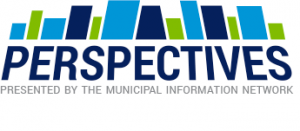Canadian municipalities have so many assets. They offer important contributions to our social development, our economic prosperity, our quality of life, the development of families, the education of our youth, and so much more.
And now we are finding out they have one more important asset to offer: poop.
Yeppers, we are learning more and more that analysis of sewage can offer consequential new data about disease, health and the tendencies of residents. While the concept has been around for decades, the prominence and resurgence of the information has been driven by the COVID pandemic over the past three years.
Researchers quickly discovered that analyzing the sewage revealed current data on where and how far and how many people had the infection. Health officials could then use the data for planning their next steps in public health campaigns.
It is even possible to much more closely study a specific neighbourhood or district. This could provide potentially vital information for epidemiologists in case of an outbreak or some virus or disease. Researchers have been able to identify new waves of COVID or a new variant emerging well before standard clinical tests. This information gives public health authorities a head-start on dealing with the next round of an infection or virus. That can save lives.
There is a delicious story—no one is admitting it, but it is a delightful anecdote—that Russian President Putin, when he travels, does not flush his waste. Instead, he has a, well, let's call him a 'pooper-scooper', to retrieve his waste. Putin does not want foreign intelligence agencies to be able to analyze his poop as it could reveal health issues.
The much larger point, however, is that this type of research offers a significant public health benefit. Researchers can gather valuable data from a wide or narrow geographic region, and the numbers can provide direction for public health campaigns. Authorities can then quickly transfer nurses, medicine and vaccines to a particular outbreak.
What seems to be uncertain is, as COVID slowly diminishes, if governments will continue to support such public health data collection in the future. It would be a shame to ignore that opportunity.
Use of wastewater data has special benefits in less-developed countries. It is a relatively inexpensive way to get a snapshot of a city's health issues. In a global pandemic, this can help health care leaders to move resources to the area of greatest need or most urgent care, and begin a public information campaign.
Canadian cities are leaders in this and should continue to provide the service and the data to researchers.
Sometimes we don't thank our sewage experts in our towns and cities; we should.











